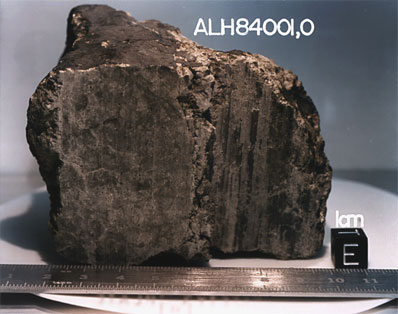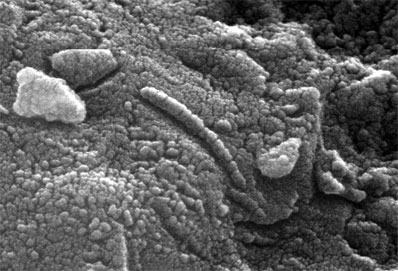J
jakethesnake
Guest
It now looks as if the Martian Meteorite ALH 84001 does indeed contain the fossils of life.
The new data are expected to be addressed publicly within days by NASA Headquarters in Washington.
A team led by Johnson Space Center has submitted a 46 page detailed paper for peer review and this document is part of the November issue of the respected journal Geochimica et Cosmochimica Acta, the journal of the Geochemical and Meteoritic Society.


The new data are expected to be addressed publicly within days by NASA Headquarters in Washington.
A team led by Johnson Space Center has submitted a 46 page detailed paper for peer review and this document is part of the November issue of the respected journal Geochimica et Cosmochimica Acta, the journal of the Geochemical and Meteoritic Society.
Martian meteorite surrenders new secrets of possible life
BY CRAIG COVAULT
SPACEFLIGHT NOW
Posted: November 24, 2009
Compelling new data that chemical and fossil evidence of ancient microbial life on Mars was carried to Earth in a Martian meteorite is being elevated to a higher plane by the same NASA team which made the initial discovery 13 years ago.
The new work centers on so-called magnetic bacteria that on Earth, and apparently Mars as well, leave distinctively-shaped remnants in the rock. In addition the features test with a high chemical purity more like a biological feature than geological.
For years after the Martian meteorite data were first presented, opponents of the life theory argued that the same shaped features and associated chemical purity was just as likely caused by a thermal/shock event that blasted the material off Mars in the first place.
But research led by Kathie Thomas-Keprta of the original Allen Hills team has now proven the thermal theory is invalid, strengthening the team's argument that the "magnetic bacteria" features found in the meteorite were indeed formed by biologic activity on Mars and not some non-biologic thermal event.




